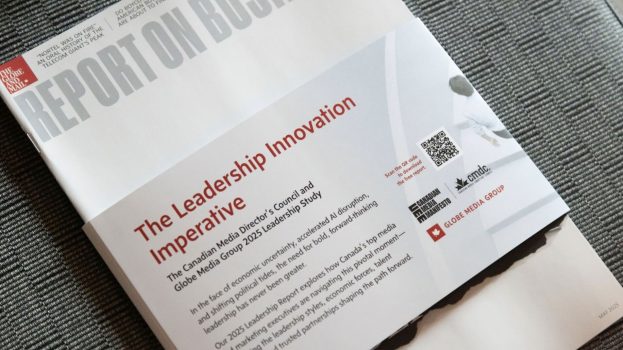A start-up Montreal broadcasting company, running headlong through a stormy legal, social and educational debate, has chosen to ignore the advertising agency community in the first phase of its marketing campaign.
The Youth News Network (ynn) of Montreal, and its French namesake, Le Reseau Actualite Jeunesse, says it has roughly 100 high schools signed up to let it begin broadcasting in classrooms a daily 12-minute current events program including 2 1/2 minutes of commercials.
ynn has already delayed its launch, originally scheduled for September. Minutes from the next planned launch date, the media directors of the country’s biggest ad agencies are not aware the new medium exists.
There are also questions as to whether it will be allowed to exist in Quebec.
‘Advertising agencies are way down on our list of people we have to sell to,’ says Victor Drury, vice-president communications for ynn.
‘I’ve never even heard of them,’ says Pierre Delagrave, vice-president media and research at Cossette Communication-Marketing, Montreal.
Delagrave says Cossette has a policy of advising clients not to advertise directly to teenagers in Quebec due to the province’s advertising laws.
‘We’re afraid of getting sued by the government,’ Delagrave says. ‘It’s serious. We get phone calls.’
One law in Quebec forbids any advertising directed at children aged 11 and under. ynn plans to broadcast only to high school youths over the age of 13.
School-endorsed advertising is a highly sensitive matter, legally and socially.
‘In principle, we support the idea of broadcasters like ynn,’ says Pierre Arthur, vice-president media at BCP Strategy-Creativity, Montreal.
‘Grey zone’
‘ynn is in a grey zone because they are selling directly and only to children,’ Arthur says
Delagrave says ynn ‘may find themselves constrained by Quebec law.
‘It seems that many cable stations are not allowed to advertise directly to teenagers,’ he says. ‘Generally, these stations can only accept sponsorships from advertisers.’
Holes in ynn’s marketing strategy? Not according to the network. It claims its planned broadcast is legal. Also, it is not concerned about the support of ad agencies because they are pitching directly to clients.
One of its trump cards, apparently, is a deal it has cut with advertising monolith, Procter & Gamble.
‘They have to be really careful,’ Arthur says. ‘They’re going to have to police themselves, particularly in the area of food, health and beauty advertising.’
ynn has such intentions.
It has a policy of not accepting ads for potato chips and chocolate bars. It is also forbidding what it terms sexist ads, ads for alcoholic beverages, political or religious ads, ads for contraceptives, feminine hygiene products, lotteries and snack food.
The broadcasting company is also planning to establish advisory councils composed of teachers, school administrators and parents who will monitor and control content.
ynn is fighting a couple of battles all at once. It is still trying to win, school by school, the support of teachers and principals to allow this new application of the tv medium in their classrooms.
This is critical. Without any boxes installed, there will not be any advertising time to sell.
The idea of young people contractually obliged, through their school, to have to watch advertising is not sitting well with everyone.
Howard Holloway, an English teacher in a Montreal high school, says he has ‘no interest in supervising kids watching commercials. I don’t want to serve the corporate agenda that way.’
Classrooms
Participating schools are allowed to use the monitors in their classrooms. They are given extra video monitors, vcrs and a video camera.
ynn probably is not worried about selling to ad agencies because it probably is not worried about finding advertisers. Teenagers are a key segment of the market for many consumer goods.
‘ynn’s best marketing argument is that they can reach this segment of the market more cost-effectively,’ Arthur says. ‘You can reach them with other media, but there is a lot of wastage.’
ynn also has the good fortune of being able to ride on the coattails of its u.s. counterpart, Channel One.
Channel One’s owners, Whittle Communications, has installed its monitors in about 12,000 schools in the States. In spite of this, the company continues to face a hurricane of criticism.
Drury says the decision to broadcast a current events program was based on a survey showing that typical high school students were lacking in their knowledge of current events.























